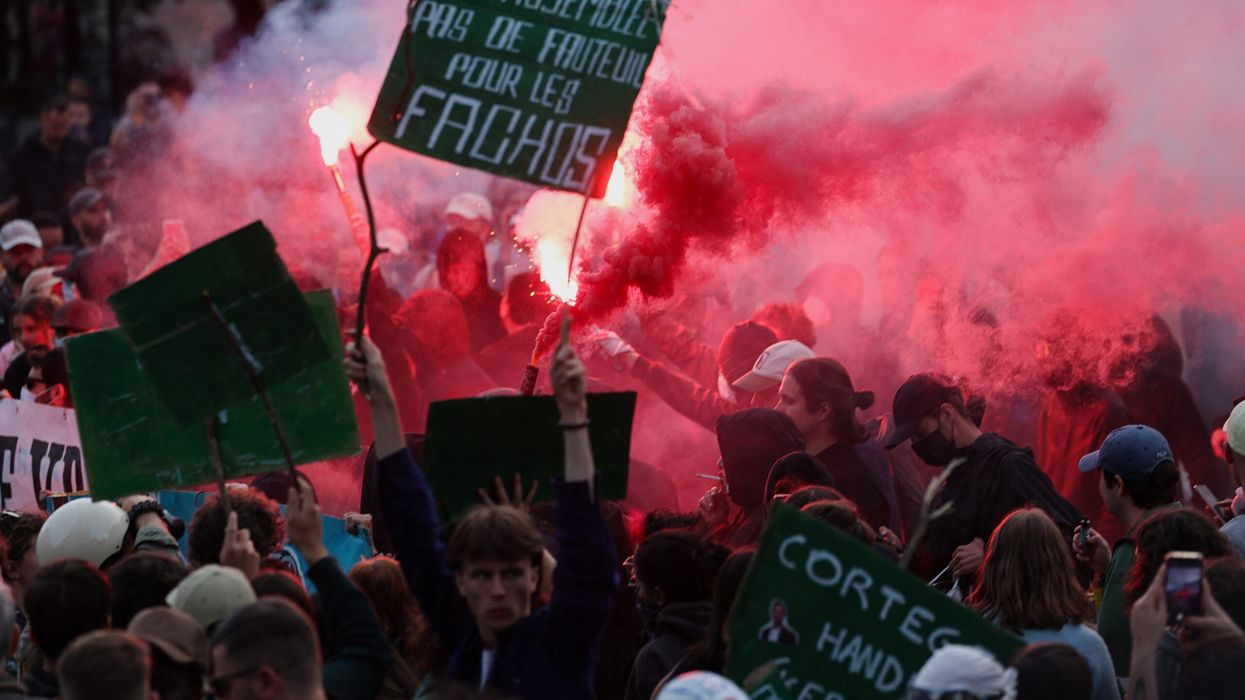France is dealing with a hung parliament and complex negotiations to form a government after a left-wing surge blocked Marine Le Pen's bid for power.
The New Popular Front (NFP) became the leading force in the National Assembly after Sunday's election, but no group secured a majority. The possibilities now include the NFP forming a minority government or building a broad coalition.
This result is a setback for President Emmanuel Macron and leaves France in a period of political instability just before Paris hosts the Olympic Games.
Macron's centrist alliance holds 168 seats, while the NFP has 182 seats, and Le Pen's National Rally (RN) and allies have 143 seats, according to the interior ministry data cited by Le Monde newspaper.
"According to the logic of our institutions, Emmanuel Macron should today officially invite the New Popular Front to nominate a prime minister," said Green leader Marine Tondelier. "Will he or won't he? As this president is always full of surprises, we'll see," she added on RTL radio.
Prime minister Gabriel Attal said he would tender his resignation on Monday, but it was unclear if the president would accept it immediately. Attal mentioned he would be willing to stay on in a caretaker role.
Dissonant voices on the left
Leaders from the NFP met overnight for talks, but in media interviews on Monday, they provided little direction. Tondelier suggested on France Inter radio that the prime minister could be from the hard-left France Unbowed party, the Greens, or the Socialists.
Olivier Faure, the Socialist leader, said on France Info radio that he expected the parties to agree on a plan this week but did not say if the NFP would negotiate a deal with Macron's camp. Raphael Glucksmann, a moderate who led the leftist ticket in the recent European elections, called for openness for dialogue.
However, France Unbowed's leader Jean-Luc Melenchon ruled out any deal with centrists, and his ally Eric Bompard was also uncompromising. "The president must appoint as prime minister someone from the New Popular Front to implement the NFP's programme," he said on France 2 television.
Bompard refused to engage with the question of how the NFP's proposals would pass without an absolute majority. The left's key proposals include raising the minimum wage, reversing Macron's pension reform, and capping prices of key goods.
Centrists open to negotiation
Some centrist figures, including former prime minister Edouard Philippe, said they were ready to work on a pact for a stable government but were not willing to work with France Unbowed. Yael Braun-Pivet, a lawmaker from Macron's party, emphasised the need for cooperation across party lines.
"The message I'm hearing from voters is 'no one has an absolute majority, so you have to work together to find solutions to our problems,'" she said on France 2 television.
The euro slipped on Monday by as much as 0.4% amid the uncertainty in Paris. "There's really going to be a vacuum when it comes to France's legislative ability," said Simon Harvey, head of FX analysis at Monex Europe in London.
Le Pen's RN saw major gains but did not meet expectations. The left and centrist alliances cooperated by pulling candidates from three-way races to create a unified anti-RN vote.
RN leader Jordan Bardella called the cooperation between anti-RN forces a "disgraceful alliance" that would paralyse France. Le Pen, likely the RN's candidate for the 2027 presidential election, said Sunday's results had sown the seeds for the future. "Our victory has been merely delayed," she said.
(With inputs from Reuters)





